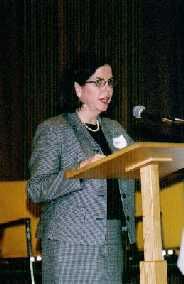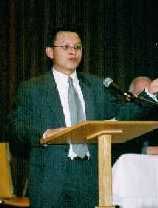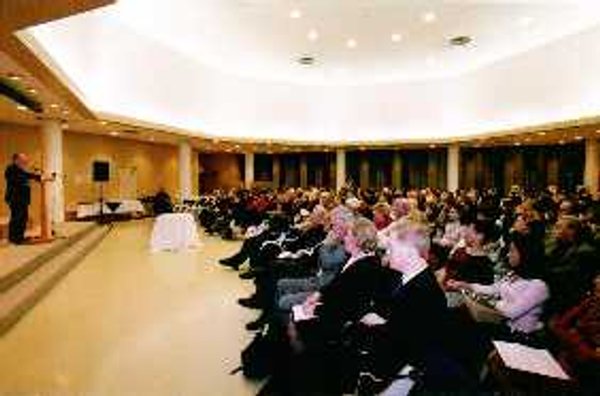The conference began on the evening of January 10 with the keynote lecture, which was delivered by John Haas, President of the U.S. National Catholic Bioethics Center. This was followed by a day-long conference on January 11. Cardinal Aloysius Ambrozic, the Archbishop of Toronto, and Monsignor Frederick Dolan, the Regional Vicar of Opus Dei in Canada, opened the sessions on the second day of the conference.

The Life and Times of St. Josemaria Escriva
The first panel of speakers drew a portrait of St. Josemaria and put it in the historical context of Spain in the early 30’s. Father Joseph Soria, recounting his experience of living with St. Josemaria, whose personal physician he was for 23 years in Rome, portrayed the saint as one who was faithful in fulfilling God’s will to its ultimate consequences. Professor John Coverdale of Seton Hall University in New Jersey focused on St. Josemaria’s love and respect for the freedom of the members of Opus Dei, which was tested by pressure to join political movements when the Church was facing severe persecution in Spain.
Seeking Holiness in the Workplace

The next session featured a presentation by Carlos Cavallé, Professor of Business Administration at the IESE Business School in Barcelona, a testimonial from Dr. Jenny Driver of the Harvard Medical School, and an exchange between the two speakers and Professor Clifford Orwin of the Department of Political Science at the University of Toronto.
Professor Cavallé showed numerous examples of how business people around the world have put St. Josemaria’s teachings of seeking holiness in the workplace into practice. Dr. Driver described how the teachings of St. Josemaria enabled her to find God in the midst of her practice as an oncologist at the Beth Israel Deaconess Medical Center in Boston and instructor at the Harvard Medical School .
Professor Orwin represented an outside perspective, being of Jewish origin and speaking from the point of view of modern political thought. He invited the two speakers to address the fact their views on loving God through one’s work are squarely against accepted wisdom, claiming that “St. Josemaria’s sanctification of work is a project of breathtaking boldness. The modern world is based on principles that are fundamentally anti-Christian.” Dr. Driver responded that she found that many colleagues and patients welcomed her efforts to talk about supernatural realities, because they had a real need for God in their lives. Similarly, Professor Cavallé pointed out that one’s response to the anti-Christian principles of modernity depends on one’s understanding of the human person. If the human person is created in the image and likeness of God, with a need to place his heart in God, then modern persons, just because they are human, will necessarily be open to the message of the Gospel and to the idea of sanctifying their work as proposed by St. Josemaria.
Opus Dei and the New Evangelization
The third session was led by Monsignor John Murphy, the Chancellor for Spiritual Affairs of the Archdiocese of Toronto. He presented an account of the parallels between the message of St. Josemaria and the documents in which the Pope has insisted on the importance of a new evangelization. He was followed by Mrs. Cecilia Royals, President of the National Institute of Womanhood in the US. She explained that she founded the NIW as an independent, secular organization based in Washington, D.C. to intervene effectively in the international discussion of the status of women.
The response to this session was given by Professor Graeme Hunter of the Department of Philosophy at the University of Ottawa. Speaking as a practicing Protestant, Professor Hunter questioned the philosophy underlying multiculturalism and spoke of the importance of “intramural evangelization” between Catholics and Protestants, both having something to learn from each other.


Opus Dei and the Works of Mercy
The conference concluded with a session on how members of the Prelature try to practice the Works of Mercy. The speakers were Professor Cavallé, Sharon Heffernan, Director of the Metro Achievement Center, an enrichment program for inner-city girls in Chicago, and Anthony Yeow of the ASE Program in Toronto. The three presenters were unanimous in pointing out that Opus Dei’s apostolate is personal, challenging the individual to be personally responsible for discovering solutions to society’s problems.
